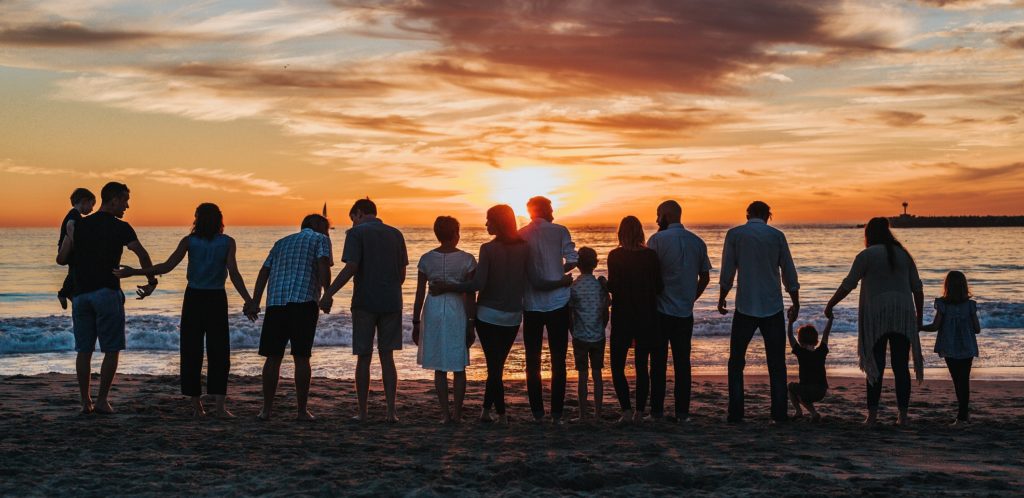Covid Anniversary Blog

A year ago we started to experience changes to even the most menial of tasks, including the weekly shop. Stripes of yellow and black tape appeared on supermarket floors guiding us around (sometimes unfathomable) one way systems, and indicating where we should stand in a ‘socially distanced’ queue. Plastic screens that used to adorn checkouts in the 1970s were hastily (re)instated.. and then we were told to don masks and ‘shop alone’.
I wrote at the time that while this physical distancing was necessary in a pandemic, it also brought into focus the risk of our being distanced from each other in ways that the philosopher Gabriel Marcel, called our ‘unavailability’.
After many months of forced separation, there is clearly a longing to be physically together again.
We recall the delight that accompanied the announcement that there could be some kind of limited family gatherings over the Christmas period, and the profoundly moving scenes of family members being able to hold hands with relatives in care homes for the first time since the pandemic started.
But what of Marcel’s more richly nuanced idea of our being available to each other – our disponibilité?
The pandemic has allowed us to reflect on what it means to offer the gift of ourselves in hospitality to another. But more than this, it has allowed us to think about what this means in original, practical, ways and how we can maintain this availability over time. These are ideas that Marcel captures in what he calls our need for ‘creative fidelity’ in our relationships with others.
The tragedy of the pandemic is all too evident in the devastation of lives, communities and the economy. But it has opened up opportunities for us to forge new ways of being available to each other emotionally, spiritually, practically, and temporally, despite physical distance.
We ask whether the world will be the same once ‘all this is over’. Perhaps not; but I want to hold on to the idea that creative fidelity, and the idea of availability, are examples how we can have hope for finding new ways to be together again.
Amanda Fulford is Professor of Philosophy of Education at Edge Hill University.
This piece is written in response to a post originally published in the Covid-19 blog on 20th May 2020 by Amanda which can be found here.
